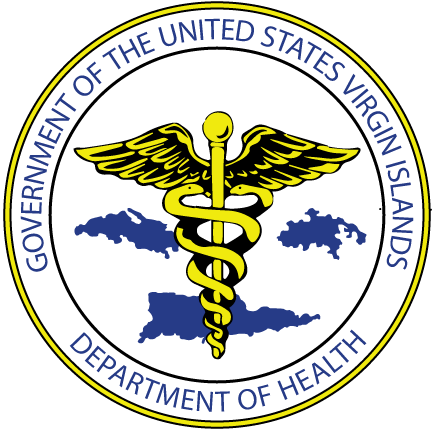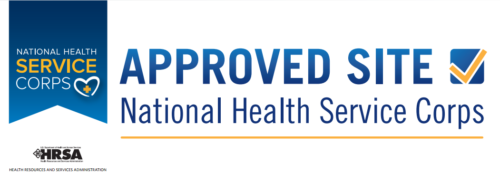St. Croix, US Virgin Islands (June 16, 2021) — As the COVID-19 infection rate surges on St. Thomas, the Virgin Islands Department of Health reminds the public that the COVID-19 vaccines are readily available across the territory and monoclonal antibody treatments are available to individuals who meet the criteria.
As of June 15, 2021, there are 92 active COVID-19 cases in the territory and the department reported the 30th death related to COVID-19 on Monday.
Despite mitigation efforts and policies set forth by Governor Albert Bryan, Jr., Health Commissioner Justa Encarnacion and the VI Department of Health Team, the COVID-19 situation remains a grave concern in the territory. The surge of positive cases on St. Thomas shows epidemiologists that not enough people have been vaccinated. This is also evident in the recent hospitalizations and deaths. When more people become vaccinated, we will reach closer to achieving community immunity.
Health officials urge the public to remain vigilant. Take your best shot. Get the COVID-19 Vaccine. COVID-19 vaccines are effective, and they can keep you from getting and spreading the virus that causes COVID-19. Getting vaccinated also protects the most vulnerable people around you. You can still get COVID-19, but it is less likely to result in severe illness or death.
Stick to what has proven to work. Wash hands frequently, practice social distancing, stay home when sick, and get the COVID-19 vaccine. Mild side effects are expected after getting vaccinated and everyone reacts differently to the vaccine. Some common side effects include a sore arm near the injection site, a low-grade fever, a headache, muscle pain, fatigue, and chills.
Anyone age 12 and older can get the COVID-19 vaccine by walking into any of our Community Vaccination Centers, by calling (340) 777-8227 or by scheduling yourself online at covid19usvi.com/vaccines. Community Vaccination Centers are located at the Nissan Center on St. Croix and at the Community Health Clinic on St. Thomas.
Recently, the department shared information regarding COVID-19 positive cases among individuals who are fully vaccinated. Thus far, 3747 people have tested positive in the territory, 13 of those cases were individuals who were vaccinated. Most of those cases (8 of 13) were among people who had no COVID-19 symptoms at all, which shows that the vaccine is indeed working. Some of those cases (5 of 13) had very minor symptoms. None of the 13 required any medical intervention to recover. For those who may get COVID-19 even after being fully vaccinated, their immune system is primed by the vaccine so it can recognize it quickly. Their body can work to neutralize the virus before it makes them sick or limits you to only minor symptoms. The goal of the vaccine is to prevent severe illness and death.
The longer it takes our community to get vaccinated, the more chance the virus has to mutate within our community. Mutations can make the virus more contagious and/or more virulent and also potentially could be resistant to the vaccine in the future. The Department of Health’s Division of Epidemiology recently received preliminary results that show 19 probable cases of the variant B.1.1.7 by qPCR (“the UK Variant”). Full sequencing is being conducted and confirmatory results will be available within the next week. B.1.1.7 is estimated to be 40%–80% (with most estimates occupying the middle to higher end of this range) more transmissible than the wild-type SARS-CoV-2, the original strain.
The surge: The recent surge of new cases on St. Thomas has brought unvaccinated individuals to the hospital with as many as eight patients being admitted at the same time in one hospital. Thankfully, there are alternative medical countermeasures available like the monoclonal antibody treatment. The Food and Drug Administration authorized the emergency use of Bamlanivimab/Etesevimab, Casirivimab/Imdevimab, and Sotrovimab, which are monoclonal antibody treatments designed to block viral attachment and entry into human cells. These antibodies neutralize the virus and can treat patients with COVID-19. The antibodies were identified from blood samples taken from some of the first patients who recovered from COVID19 in the United States.
We have been administering monoclonal antibody treatments to individuals with COVID-19 who meet the criteria. We have treated 140 COVID-positive, high-risk patients with mild disease with monoclonal antibodies. Of those patients who received monoclonal antibody infusions, three with mild disease still required hospitalization. One additional patient unfortunately passed away with other severe complications. This medical treatment has been a tremendously effective success at preventing hospitalizations and death in the territory.
It is strongly recommended that people receive the COVID-19 vaccine 3 months after receiving monoclonal antibody treatments or immediately after recovering on your own from COVID-19 and completed quarantine. This will prevent reinfections especially among circulating variants.
If you have been diagnosed with COVID-19, contact your healthcare provider immediately to determine if you qualify for monoclonal antibody treatment. The impact is seen if treatment is utilized before symptoms become too severe.
It is critical that if you may have been exposed to COVID-19 or if you are sick, that you report your symptoms or your exposure to the Department of Health by calling the Epidemiology Hotline at (340) 712-6299 or (340) 776-1519. If you have been confirmed COVID-19 positive and are not well, seeking care is crucial to reducing the risk of serious illness and preventing death. If you have a medical emergency, please call 911.

